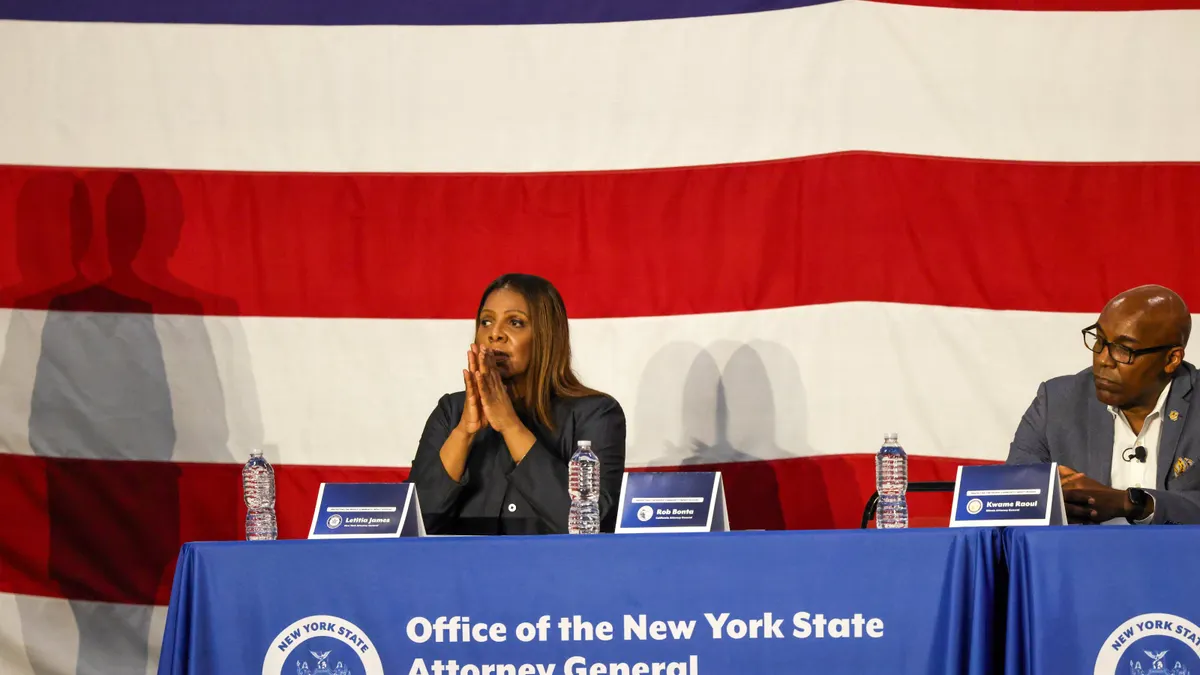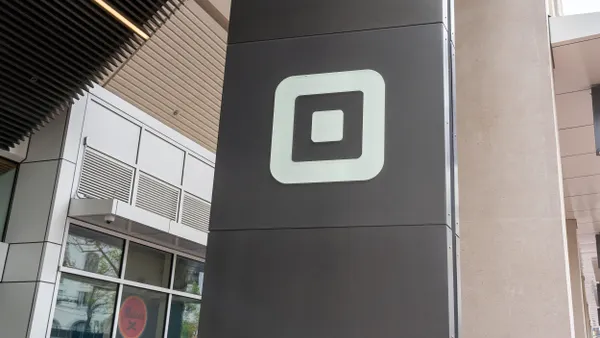Dive Brief:
- Earned wage access providers DailyPay and MoneyLion Technologies are battling New York’s attorney general over whether complaints the state filed against them should be heard in state or federal court.
- DailyPay sought to shift the lawsuit filed by Attorney General Letitia James to U.S. District Court on April 25, less than two weeks after the AG’s office filed it in state court. MoneyLion, the defendant in a separate New York case with similar claims, followed that same path on May 15.
- U.S. District Judge John Koeltl in New York City canceled a July 31 court hearing in a related case, in which DailyPay sued the New York AG, according to court filings. The EWA provider sued April 7 seeking a declaratory judgment that its services don’t constitute lending and that it hasn’t violated the Consumer Financial Protection Act or New York state laws.
Dive Insight:
The issue of venue has stayed the state’s response to DailyPay’s complaint. New York has two weeks to respond once the federal court decides where the state’s complaints should be heard, according to federal court filings.
DailyPay and MoneyLion argued that New York’s use of the federal Consumer Financial Protection Act for claims of deceptive and abusive conduct against consumers implicates multiple federal questions.
New York-based DailyPay said that the state’s “demand for federally-created remedies that are unavailable under New York law — namely civil penalties and costs under the CFPA — necessarily raises substantial and disputed federal questions.”
In its removal filing, lawyers for New York-based MoneyLion said that the New York AG “appears to be the first agency, federal or state, to bring actions seeking to apply the CFPA to an EWA product. MoneyLion is unaware of any judicial decision addressing the application of the CFPA to EWA products.”
However, removing the DailyPay case to federal court “will deprive New York courts of their proper role in interpreting and applying New York law to ongoing evasion by an emerging, exploitative industry in favor of a federal forum for which Congress expressed no preference,” the Attorney General’s office wrote in a June 23 filing seeking to have its DailyPay case returned to New York court.
The AG also argued that Congress intended the 2010 consumer financial law to be enforced by attorneys general in state courts.
Providers of EWA services, also known as on-demand pay services, have proliferated in recent years to extend services by which workers, mainly hourly employees, can tap their earned pay before a scheduled payday.
The New York AG’s complaints allege that both companies made “illegal, high-interest loans” with fees that “amount to outrageous annual interest rates in the triple digits.”
New York alleges that the companies practices “constitute illegal and deceptive conduct and abusive lending practices” that violate the state’s usury laws.
In its lawsuit, DailyPay said the state’s “alleged violations all depend on the OAG’s flawed assumption that DailyPay’s (on-demand pay) product is a loan,” noting that it doesn’t require repayment from workers, charges interest or checks workers’ creditworthiness.













